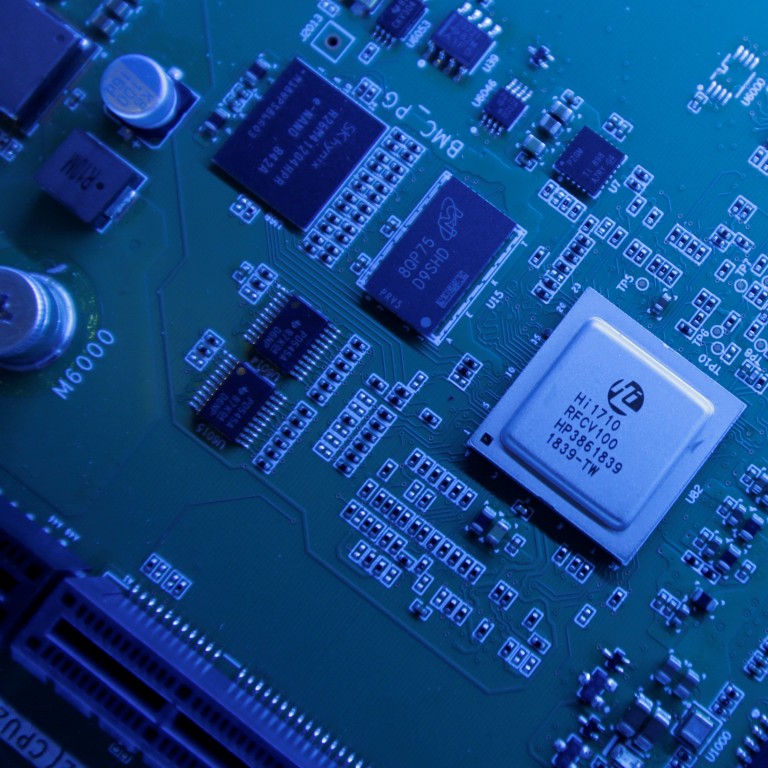
China completes second round of US$29 billion Big Fund aimed at investing in domestic chip industry
- New investment is likely to lean towards applications in downstream supply chain, such as chip design, advanced materials and equipment areas
China is making swift progress on its 200 billion yuan (US$29.08 billion) fund aimed at investing in home-grown semiconductor development, as the world’s second-largest economy looks to reduce dependence on foreign chips amid a tech war with the US.
The state-backed China Integrated Circuit Industry Investment Fund, also known as the country’s “Big Fund”, has completed raising capital for its second tranche, the China Securities Journal reported on Friday, citing sources familiar with the matter.
New investment is likely to lean towards applications in the downstream supply chain, such as chip design, advanced materials and equipment areas, according to the report.
The fundraising progress comes amid an escalating tech war with the US, which has seen China tone down statements on its wider “Made in China 2025” policy ambitions, after President Xi Jinping first called for a drive towards technological self-reliance last year.
“We [should] hold innovative development tightly in our own hands,” Xi said in an address to the country’s top scientists and engineers at a conference in May last year. “[We have to] put much effort into key areas where we are facing bottlenecks … and make breakthroughs as soon as we can.”
Alibaba unveils its own processor as China seeks self-reliance in chips
The US regards elements of the Made in China 2025 policy plan as unfair state intervention in the economy and has recently ramped up pressure on the country’s hi-tech industry with trade restrictions. Telecoms gear maker ZTE was brought to the brink of collapse last year when the US cut off the supply of American technology to the company, citing violations of a previous agreement that censured the firm for breaching sanctions against trade with Iran.
In May, the US Commerce Department placed Huawei Technologies on the Entity List, alleging that Huawei was engaged in activities that are contrary to US national security or foreign policy interest. Huawei has repeatedly denied that this is the case and has called for more open, consistent standards when it comes to the security evaluation of next generation 5G network equipment.
China does have an import dependence weakness though. Although the country is estimated to make more than 90 per cent of the world’s smartphones, 65 per cent of personal computers and 67 per cent of smart televisions, it has to source most of the chips that go into these devices from overseas.
The value of China’s annual chip imports has surpassed oil in recent years, surging to US$312 billion in 2018.
Incorporated in 2014, the Big Fund is aimed at leading national efforts to catch up in the global semiconductor industry by backing chip start-ups and research and development via the private and secondary markets.
Chinese AI chip maker Horizon Robotics raises US$600m in funding
China Development Bank Capital, China Tobacco, E-Town Capital, China Mobile, Guosheng Group, China Electronics Technology Group Corp, Beijing Unis Communications Technology Group and Sino IC Capital were among the first batch of investors in the fund, when it raised 138.7 billion yuan in its first round in 2014.
The fund operates as a corporate entity under the MIIT and the Ministry of Finance.
More than nine listed firms have disclosed new investments from the Big Fund since April last year, according to stock market filings. These include Shenzhen-listed Changchuan Technology, a semiconductor test equipment company, and GigaDevice Semiconductor, a Shanghai-listed Integrated Circuit flash memory chip designer.

